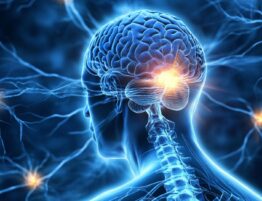As we age, our immune systems face challenges that require constant restoration. The body’s natural defense mechanisms become less efficient over time. Quality sleep improves overall health and significantly impacts brain function. During sleep, the brain doesn’t simply rest. Instead, it actively processes information and regulates hormones. The brain also consolidates memories and clears metabolic waste products that accumulate during waking hours. Sleep and brain function work together, making quality rest essential for older adults. Good sleep enhances emotional stability, physical strength, and memory.
Research shows that adults need between seven to nine hours of sleep nightly for optimal brain health. However, many people consistently get less than this recommended amount. This sleep deficit creates a cascade of negative effects throughout the body. The consequences become more pronounced as we age, when sleep architecture naturally changes.
Proper sleep restores neural pathways and supports overall health. During deep sleep stages, the brain repairs damaged cells and strengthens important connections. Without adequate rest, people may develop neurodegenerative diseases.
Sleep and Brain Function: Understanding the Impact on Memory
Sleep significantly affects overall body health. It’s also essential for optimal brain activity. The brain processes, stores, and receives information more effectively during rest. Modern neuroscience reveals that sleep isn’t passive downtime but rather an active period of brain maintenance. Different sleep stages serve specific functions for memory and learning. Sleep and brain function connect through the conversion of short-term memories into long-term ones. This process involves complex interactions between the hippocampus and neocortex. This makes information more accessible and better processed. Here’s how sleep creates significant impact:
- Memory Consolidation: During sleep, memory consolidation occurs through neural connection changes. The brain replays important experiences from the day, strengthening relevant neural pathways. This process happens during deep sleep phases and provides maximum benefit. Without adequate slow-wave sleep, new memories may fade or become distorted.
- Learning and Adaptation: Sleep significantly improves your ability to adapt socially. It makes learning easier and helps you process and retain new knowledge. Studies show that people who sleep after learning new skills perform better than those who stay awake. This applies to both motor skills and cognitive tasks.
- Creative Problem-Solving: During sleep, the brain enhances thinking processes. It improves idea generation and helps solve problems while boosting creativity. REM sleep particularly supports innovative thinking by creating novel connections between seemingly unrelated concepts. Many breakthrough discoveries have reportedly occurred during or immediately after sleep.
- Emotional Regulation: Sleep impact on memory by balancing emotional reactions. This is essential for managing stressful situations. The brain processes emotional experiences during sleep, helping integrate them with existing knowledge and reducing their emotional intensity.
- Information Processing: Quality rest improves memory function. It allows better perception and processing of daily information. The sleeping brain sorts through the day’s experiences, deciding which memories to keep and which to discard.
Brain Detox During Sleep: How the Night Clears and Restores Your Mind
Brain detox during sleep is vital for human health. This process removes harmful toxins that can cause disease. Recent scientific discoveries have revealed the importance of the glymphatic system in brain cleaning. This system becomes most active during sleep when brain cells shrink, creating more space for fluid flow. It particularly targets toxic proteins associated with Alzheimer’s disease. Sleep helps eliminate these dangerous proteins during deep sleep phases. Beta-amyloid and tau proteins, which form harmful plaques in Alzheimer’s disease, are cleared more efficiently during quality sleep.
If you experience sleep problems, consulting with a doctor is essential. Sleep disorders like sleep apnea can significantly impair the brain’s detoxification processes. You can contact LoneStar Neurology for detailed treatment advice. We’re available in cities like Allen, Carrollton, and surrounding areas.
Chronic sleep deprivation may accelerate cognitive decline and increase dementia risk. Here’s what happens during brain detoxification:
- Fluid Exchange: During sleep, accelerated fluid circulation occurs. Cerebrospinal fluid flows through brain tissue more rapidly than during waking hours. This washes away unnecessary waste that accumulates throughout the day. The process is similar to a dishwasher cleaning accumulated debris from dishes.
- Neuronal Recovery: Quality rest greatly impacts neuron recovery. Cells repair damage and protect the brain from prolonged inflammation and oxidation. Sleep also promotes the production of new brain cells in certain regions.
- Disease Prevention: Detoxification is crucial for reducing neurodegenerative disease risk. Insufficient rest often contributes to Alzheimer’s and Parkinson’s disease development. Regular quality sleep may serve as a protective factor against cognitive decline.
- System Reboot: Brain detoxification during sleep provides a complete system reboot. It clears unnecessary waste and restores energy balance. This process prepares the brain for optimal functioning the next day.
Sleep Deprivation Effects: How Lack of Rest Damages Neurological Health
Insufficient sleep leads to numerous neurological problems. It has both short-term and long-term effects on the body. Sleep deprivation affects brain function and worsens overall health. It affects memory and concentration while potentially causing illness. These effects may require professional sleep disorder treatment. Here are the main neurological consequences of inadequate rest:
- Cognitive Disorders: Insufficient rest significantly contributes to cognitive decline. It causes difficulty concentrating, slow reactions, and impaired decision-making in daily life.
- Memory Impairment: Memory problems create serious negative consequences. They make it difficult to recall information and process new learning effectively.
- Emotional Instability: Sleep deprivation makes it harder to manage emotions and maintain a positive mood. This leads to depression, anxiety, and irritability.
- Hormonal Disorders: Sleep deprivation effects causes hormonal imbalances. The body poorly regulates stress hormones, potentially leading to overeating and poor mental state.
- Increased Disease Risk: Insufficient rest increases the risk of neurodegenerative diseases. It can potentially lead to severe Alzheimer’s disease or dementia.
Neurologist Sleep Tips: Expert Advice for Improving Sleep Quality
Improving sleep quality is the most effective way to restore health. Neurologists recommend specific guidelines for enhancing sleep quality through proper strategies. Both doctors and neurologists emphasize focusing on rest and creating optimal conditions. The right environment helps maintain health and improve neurologist sleep tips.
These sleep tips benefit anyone concerned about their health. Consistent application enhances sleep quality while maintaining neurological health:
- Consistent Sleep Schedule: Maintain regular bedtimes and wake times. For example, sleep at 10:00 PM and wake at 6:00 or 7:00 AM.
- Limit Blue Light Exposure: Restrict phone and computer use for 30-60 minutes before bedtime.
- Optimize Sleep Environment: Create a pleasant atmosphere with essential oil aromatherapy. Keep your bedroom completely dark and slightly cool.
- Practice Relaxation Techniques: Use deep breathing, meditation, or reading to prepare your brain for sleep.
Brain Health and Rest: The Key Benefits of Quality Sleep
Brain health and rest are intimately connected. Good sleep affects brain function and health while providing protection against neurodegeneration. Sleep offers tremendous benefits affecting memory, cognitive abilities, and overall health. Quality sleep is essential for both immediate and long-term health. Mental health directly depends on rest quality. Well-being fundamentally depends on giving both body and mind adequate rest. Here are the key benefits of quality sleep:
- Enhanced Cognitive Function: Good rest directly impacts cognitive activity. It improves concentration during work hours while supporting creativity and mood.
- Emotional Stability: Brain health and rest greatly affect emotional stability. After quality sleep, people become more stress-resistant, less nervous, and less irritated. They experience improved mood regulation.
- Neuroprotection: Quality rest plays an important role in maintaining cognitive health. It provides enhanced neuroprotection, supporting overall health and healthy aging.
- Hormonal Balance: Sleep impacts memory through improved hormonal balance. Quality sleep supports brain energy while reducing metabolic stress. This results in fewer hormonal problems and improved metabolic processes.
- Optimal Brain Function: Quality sleep is essential for enhanced brain function. It significantly impacts neural plasticity while reducing neurodegenerative disease risk.
Sleep Assessment and Personalized Guidance at Lone Star Neurology
Sleep assessment plays a crucial role in health evaluation. Many people benefit from professional evaluation and personalized guidance. Sleep disorders affect millions of Americans, yet many cases remain undiagnosed and untreated. You can contact us for detailed information about our services. Our team of board-certified neurologists specializes in sleep medicine and related neurological conditions. Personalized sleep assessments ensure that each individual can improve sleep quality and achieve maximum neurological health results.
Comprehensive evaluation includes studying medical history and sleep patterns. Doctors take detailed patient histories and examine lifestyle factors. We also consider environmental influences, medication effects, and underlying health conditions that may impact sleep. Our assessment process typically begins with a thorough consultation and may include sleep studies if necessary. Diagnostic testing identifies problems with specific systems. Advanced sleep monitoring technology allows us to observe brain activity, breathing patterns, and muscle movements during sleep. It helps doctors recognize movement disorders and breathing issues during different sleep stages.
Ongoing support throughout all treatment stages is essential for long-term improvement. We provide regular follow-up appointments to monitor progress and adjust treatments as needed. Quality sleep ensures good mood, strong memory, and optimal brain function. Investing in better sleep today pays dividends in cognitive health for years to come.












I've given up... the stress her office staff has put me through is just not worth it. You can do so much better, please clean house, either change out your office staff, or find a way for them to be more efficient please. You have to do something. This is not how you want to run your practice. It leaves a very bad impression on your business.
Please, leave your review
Write a comment: